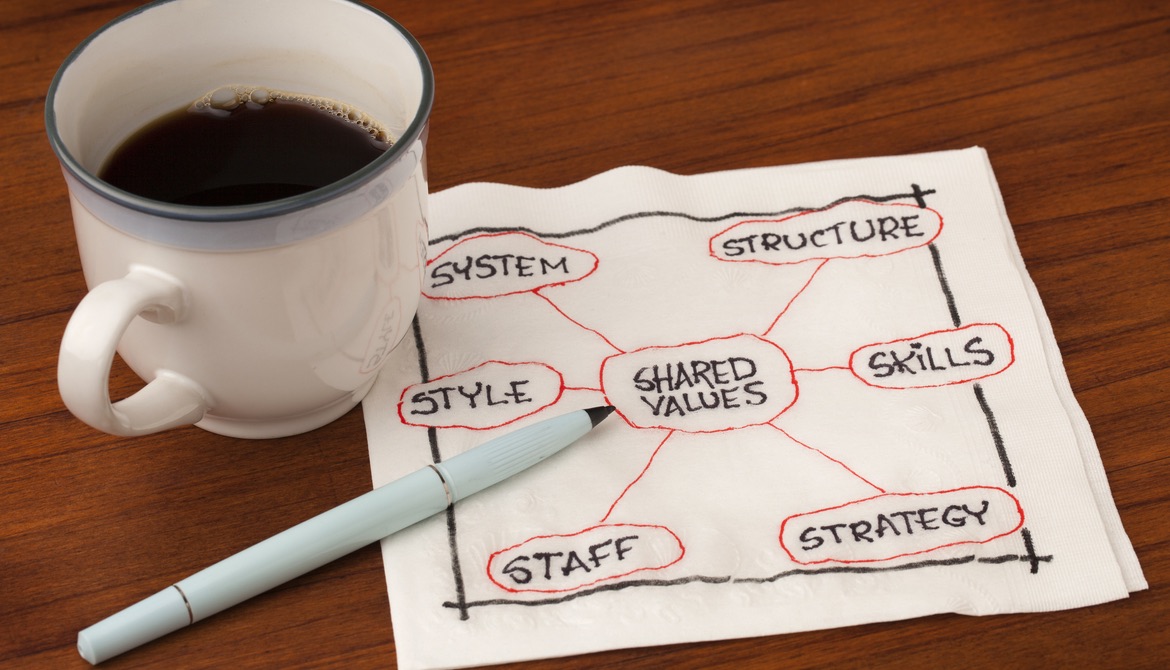3 minutes
A case study of how Dane County CU did so
“What are your personal values?” I’ve asked this question of new leaders, long-time leaders and individual contributors. Often, I’m met with a pause and sometimes a blank stare, as many have never really thought about how to articulate their values.
|
The 10 Situational Outlook Questionnaire Dimensions
|
Have you ever sat down and really thought about your own personal values? What drives you? What motivates you? What is most important to you? Being able to identify your values helps to guide your actions, behaviors and decisions so you can be the person you want to be.
Sidebar: If you’ve never thought about your own values, I recommend you do so. Take a few minutes and think through what is important to you. Here are 418 values to help get you started.
While personal values reflect who you are and what you stand for, organizational values serve the same purpose. Organizational values become a road map that individual employees can use to navigate situations and make decisions in line with the organization.
You may be able to guess my next question: “What are your organizational values?” Do you have them? Do members of your staff know what they are? Do they truly represent what you want to achieve as an organization?
Organizational values should not just live on the wall or on a webpage. They should represent the standards, ideals, beliefs and actions of the organization. This is what Dane County Credit Union leaders envisioned as they involved staff in developing their organizational values.
A first step in developing organizational values is understanding the organization’s current climate. In May 2018, $188 million Dane County CU completed the Situational Outlook Questionnaire, an organizational climate assessment. From this questionnaire, Dane County CU leaders gathered data and open feedback from staff about their perceptions of the working environment (within 10 dimensions in the box at right). With a 65 percent response rate, the data offered great insight for the leadership team to better understand how individual staff members (and departments) view the current climate. The leadership team reviewed the data to identify gaps as well as opportunities to help create connections between the credit union’s climate and its mission and strategy.
The honest, anonymous feedback was a starting point for a small planning team to develop organizational values. The group identified 23 potential values, enlisted feedback from all staff to select the top five and concluded with six employee-supported core values. Just as staff were involved in the identification of the values, the CU’s leadership thought it was important to gather feedback on defining the values. Staff were then re-engaged to help create definitions for the values The planning team refined and rolled out the final organizational values to all staff. The engagement of staff throughout the process supported not only employee buy-in with each of the values, but engagement in defining who the credit union is and, therefore, how they as employees operate.
Regardless of whether your values are newly created or have been in place for years, basing your work on values derived from data or using data to understand how your values are lived adds creditability. It also drives connection with staff in how the values are demonstrated every day at your credit union. Connect your staff to your values and vice versa, by helping them understand the behaviors needed to live the values and be the organization you want to be.
Jennifer Stangl is CUES’ director of professional development.
CUES Consulting offers resources for credit unions to understanding your organizational climate to recognize how your values are being lived or to offer a starting point to help create organizational values.






